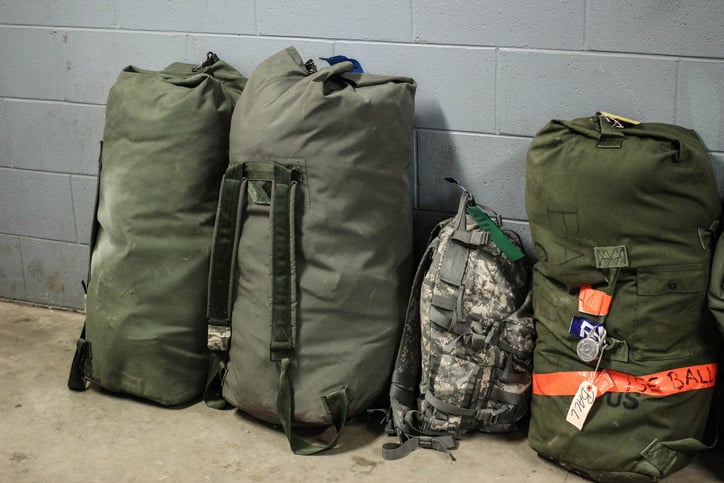Picture two soft bags, side by side. They’re the same size, shape and color. They’re both embossed with the same logo and stitched details. As far as the eye can see, the two bags look the same.
But there is one important difference that allows one of the bags to be used by the Department of Defense and the other barred: Berry compliance. That difference between Berry compliant versus non-compliant products is everything.
What Are Berry Compliant Products?
Berry compliant products meet the strict set of standards set out by the Berry Amendment, a U.S. regulation enacted during World War II. In a nutshell, the amendment requires that certain products – especially textiles – procured by the DoD must be made from U.S-manufactured materials. Everything down to the threads used has to be made in the U.S.
The goal is twofold: to make sure that the DoD has high-quality, reliable products and to support domestic industries.
For a product to be considered Berry compliant, it isn’t just where the final assembly takes place that matters. Every component, from the fabric to the thread, has to be made in the U.S.
What Are Non-Compliant Products?
In contrast, non-compliant products are manufactured without adhering to the Berry Amendment’s requirements. This may mean that some or all of the components are sourced from global suppliers or that the product is manufactured outside of the U.S.
It’s important to note that just because you are working with a U.S. company with products labeled as “Made in the USA” does not mean that they are Berry compliant. Many U.S. sewers source materials from Asia and then do the sewing and assembly in the U.S. If you have a Berry requirement, confirm that the U.S. manufacturer is complying with Berry standards and using only materials that are made in the U.S.
While non-compliant products are often cheaper to produce, there are a number of trade-offs. Non-compliant products are more likely to have variability in their production processes, which can result in products that do not perform as reliably or are as durable. This difference is especially crucial in industries like defense, where failure is not an option and products need to function consistently under extreme conditions. That’s why the DoD requires all products to be Berry compliant.
A Recap: Key Differences Between Berry Compliant and Non-Compliant Products
Material Sourcing
- Berry compliant: All materials must be manufactured in the U.S., ensuring that they meet the highest standards for safety, quality and durability.
- Non-compliant: Materials can come from any country, which means quality controls may vary.
Manufacturing Standards
- Berry compliant: All manufacturing must take place within the U.S., under strict regulations that guarantee quality and consistency.
- Non-compliant: Offshore manufacturing in countries with different regulatory standards, which can lead to inconsistencies in product quality.
Product Reliability
- Berry compliant: These products are built for reliability, especially in high-stakes environments like military operations.
- Non-compliant: With the likelihood of less stringent manufacturing oversight, non-compliant products can be more likely to fail, especially when subjected to more demanding applications.
Cost Considerations
- Berry compliant: The cost of producing Berry compliant products tends to be higher, due to the need for U.S.-manufactured materials and domestic labor. However, this higher cost is often justified by the product’s superior quality, reliability and longevity.
- Non-compliant: These products are usually cheaper to manufacture, thanks to lower labor costs and global material sourcing, but that can come at the expense of quality.
Berry Compliant Products With Cases By Source
The differences between Berry compliant and non-compliant products can be stark. While non-compliant products may offer a lower price point, they often fall short in terms of quality, durability and reliability. With Berry compliant products, you know what you’re getting.
At Cases By Source, we specialize in developing custom-engineered solutions that meet the rigorous standards of the Berry Amendment. Whether you’re developing new products or replicating existing packaging designs to be Berry compliant, we have the expertise and resources to deliver.
Ready to make the switch to Berry compliant products? Contact our team today to discuss your project requirements and let us help you design a solution that fits your – and the DoD’s – exact needs.







Leave a Comment